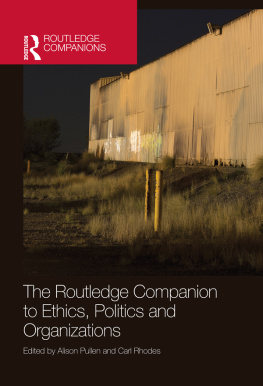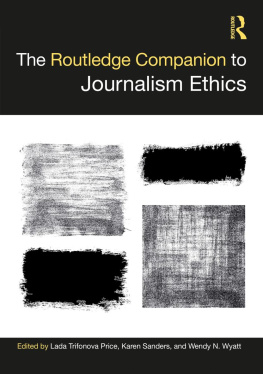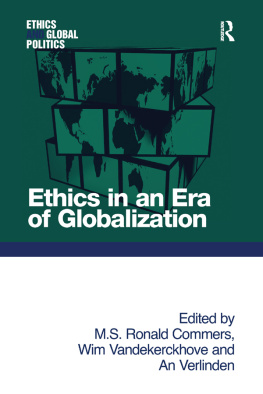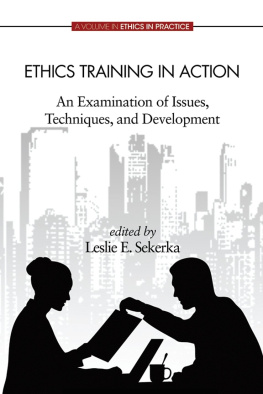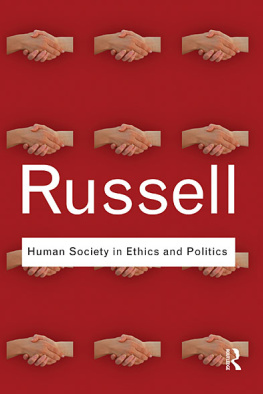First published 2015
by Routledge
2 Park Square, Milton Park, Abingdon, Oxon OX14 4RN
And by Routledge
711 Third Avenue, New York, NY 10017
Routledge is an imprint of the Taylor & Francis Group, an informa business
2015 selection and editorial material, Alison Pullen and Carl Rhodes; individual chapters, the contributors.
The right of the editors to be identified as the author of the editorial material, and of the authors for their individual chapters, has been asserted in accordance with sections 77 and 78 of the Copyright, Designs and Patents Act 1988.
All rights reserved. No part of this book may be reprinted or reproduced or utilized in any form or by any electronic, mechanical, or other means, now known or hereafter invented, including photocopying and recording, or in any information storage or retrieval system, without permission in writing from the publishers.
Every effort has been made to contact copyright holders for their permission to reprint material in this book. The publishers would be grateful to hear from any copyright holder who is not here acknowledged and will undertake to rectify any errors or omissions in future editions of this book.
Trademark notice: Product or corporate names may be trademarks or registered trademarks, and are used only for identification and explanation without intent to infringe.
British Library Cataloguing in Publication Data
A catalogue record for this book is available from the British Library
Library of Congress Cataloging in Publication Data
The Routledge companion to ethics, politics and organizations/
edited by Alison Pullen and Carl Rhodes. First Edition.
pages cm. (Routledge companions in business, management and accounting)
Includes bibliographical references and index.
1. Business ethics. 2. Organizational sociology. I. Linstead, Alison, editor.
II. Rhodes, Carl, editor.
HF5387.R6768 2015
174.4 dc23
2014040628
ISBN: 978-0-415-82126-1 (hbk)
ISBN: 978-0-203-56684-8 (ebk)
Typeset in Bembo and Stone Sans
by Florence Production Ltd, Stoodleigh, Devon, UK
Part 5
Ethics, resistance and struggle
26
On the impossibility of business ethics
Gerard Hanlon and Matteo Mandarini
The problem with business ethics is that it is business ethics; that is to say, it seeks to remove the politics of the working class and install what we, following David Harvey, will call the restoration of (ruling) class power and, hence, the concomitant reinforcement of capitalist social relations as natural. Thus, before you can get to ethics you must deal with business and business always aims to be organized from above, to be top down, to seek individualization or acquiescent aggregated units, to enable some (and not others) to set the tone, to lead, to be reasonable; and the prioritization of business is advanced by the turn to ethics, an ethics understood as the self-regulation of the individual, a responsibilization of the individual according to values drawn from above and interjected to and away from a politics from below. This from above is true for all the essential elements of business: the state, the market or the work organization. In what follows we will argue that business ethics emphasis on the ethical is largely about its desire to limit, to stifle and contain the formation of a certain homogeneity of interests, which are formed and self-organized in the struggle of the collective working subject; it is a desire, in short, for the excision of the antagonistic political subject the worker upon which business depends but which it must subordinate.
Overturning some of the contemporary championing of heterogeneity, difference or autonomy, we shall argue that what we see here is the attempt to replace political homogeneity and collective control with ethical heterogeneity and elite leadership. Unfortunately for business ethics, to achieve what many progressives would seek from it, it would have to do that which it cannot openly do embrace the collective, the political. This it cannot do precisely because it is itself formed politically and collectively as a reaction to the working class but is itself also divided by the necessity of its own individual competition and intra-class fractionation (van der Pijl, 2012).between different owners of capital in competition, or between different functions of capital (as in commercial, money and productive capital) in competition or in positions of relative dominance or subordination (van der Pijl, 2012). We shall return to this through a discussion of the analyses by the Italian Workerist, Mario Tronti, and later in the conclusion. In our rendering business ethics is the opposite of this. It is the creation of division, of heterogeneity, of market aggregates, of individualization, of fragmentation via the state, the market, or the organization. It is part of the soft (and not so soft) technologies of regulation. It demands that individual workers adopt and implement an ethics from above, to self-regulate in accordance with the interests of capital. Unsurprisingly, calls for business ethics grow during periods of class transformation such as the present because capital uses it to forestall the further potential homogenization of labour that is possible during phases of recomposition.
Our proposition a seeming call for uniformity rubs the contemporary cloth the wrong way. So why make this call? Following the Workerist tradition in Marxism we will argue that contrary to the worldview from above, it is the working class that drives progress and that this class, rather than the bourgeoisie, is the engine of inclusive change; and it is able to do this because tendentially it is unity-in-action, with if you like an ethics, but we prefer, a political practice, formed from below in the course of struggle. This again seems counter-intuitive to the times. Even Marxists such as Harry Braverman (1974) suggested the workers role was largely one of resistance a responder to, and shaper of, but not the instigator of, change. In this case capital or management rather than labour is the creator of tomorrow one admittedly modified and made more progressive by labours resistance. In contrast we will argue that labour not capital, politics not ethics, homogeneity not heterogeneity are the forces of innovation, creators of a better tomorrow.
What follows is divided into six sections. The first of which is a brief contemporary and historic account of the ethics of restoration in management perhaps better, in leadership. The second section then looks at the work of Mario Tronti and others to argue that working-class homogenization lies at the heart of capitalisms progress and the formation of the bourgeoisie as a class, and that it is this classs soft and hard technologies of regulation that are at the base of its attempts to create heterogeneity that is, at its attempt at the restoration of its own position in light of the political power of the working class. The chapter then moves into a section entitled ethical management, homogeneity and heterogeneity in the steel mill to locate Trontis conceptualization of the relations between labour and capital. It does this by examining an industry at the very heart of the formation of the modern corporation the form that is to deliver contemporary business ethics to expose its incomplete attempt to steal labours knowledge, its attempt to create labour homogeneity, capitals reactive rather than proactive quality, and capitals use of ethics (and other tactics) to attempt to intervene and shape workers class reproduction. From this section we then go back in time to use F. W. Taylor as an illustration of management ethics; the following section pulls these strands together to examine the spillage of these issues of homogeneity and heterogeneity beyond the factory to the whole of society as the political power of the working class forces capitalists to respond on an ever larger scale and themselves to homogenize as a class in light of labours potentiality. We will then conclude to say something about the issue of business ethics in the contemporary economy.
Next page
